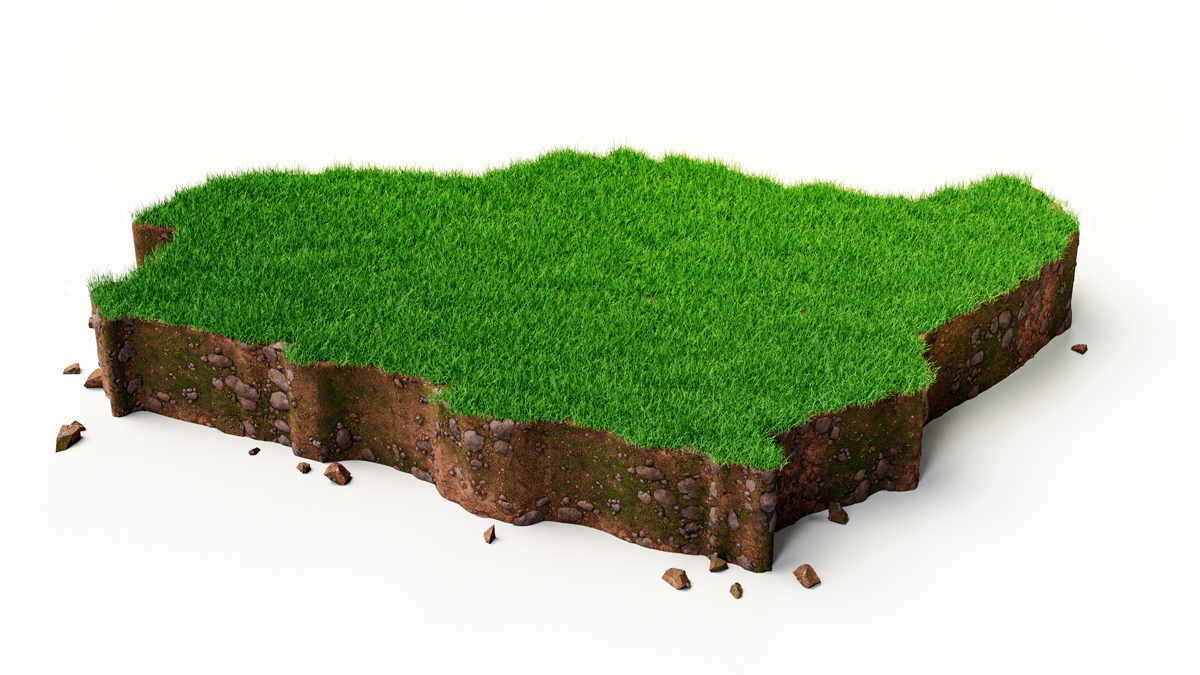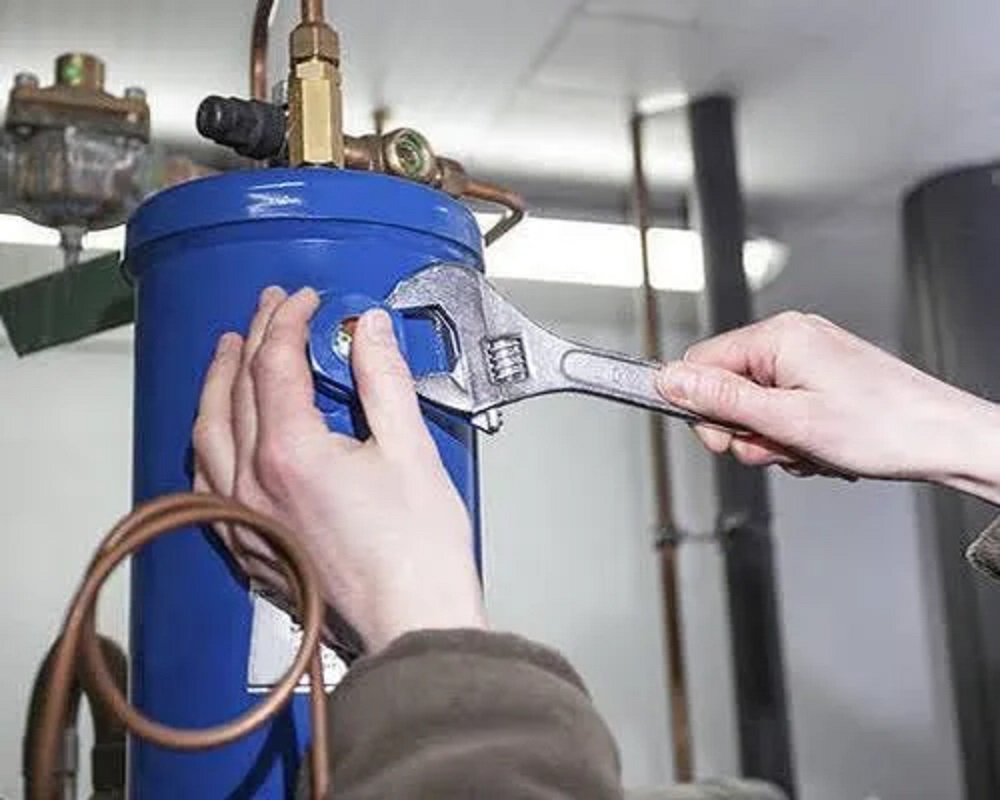
The role of magnetic treatment in improving the production of agricultural crops
Improving agricultural crop production is important in providing investment opportunities and achieving self-sufficiency. As Saudi Arabia aims for permanent development in the agricultural field. As it is one of the goals of the Green Saudi Initiative, which is one of the projects of Saudi Vision 2030. Therefore, it works to increase the production of many crops in various ways.
Crops we are keen to achieve self-sufficiency by improving the production of agricultural crops
Grapes
The Ministry of Environment, Water and Agriculture stated that the Kingdom’s production of grapes amounts to more than 101,569 thousand tons annually. Through its cultivation in a number of regions, in an area estimated at more than 3746 hectares, to achieve self-sufficiency at 59%. Noting that grapes are considered an economic fruit. Good high profitability, as it is characterized by abundant production, and the success of its cultivation in a wide range of different soil types, with relatively little need for water.
Grapes are grown in various types of soil, and under climatic conditions available in most regions of the Kingdom, and the production season, according to the report, extends from June to September, and its cultivation areas are concentrated in Qassim, Tabuk, Al-Jawf, Medina, Makkah, Al-Baha, Asir, Riyadh, Hail, Najran, and the northern borders.
The report pointed out that grapes are characterized by a high nutritional value, as they contain high levels of sugars that provide the body with energy, potassium, and many vitamins, and have many health benefits; It protects against cancer, strengthens immunity, reduce high cholesterol, prevents heart disease, lowers blood pressure, and helps maintain brain health.
Mango
The Ministry of Environment, Water and Agriculture revealed that the Kingdom has achieved self-sufficiency in mango fruit with a rate of 51.7%, with a production of more than 86.4 thousand tons annually, by cultivating it in a number of regions, in an area estimated at 6872 hectares.
This came in a report issued by the ministry, as part of the (Its Time) campaign that it recently launched to introduce the various types of local fruits and spread knowledge of agricultural products. The mango fruit is one of the tropical crops with high economic returns, and it is grown in a number of regions, most notably the Jazan region, in the governorates of Sabya, Abu Arish, Al-Darb, Samtah, and Baysh, and the Makkah region in the provinces of Al-Qunfudah, Al-Laith, and Adham. It is also grown in the Al-Baha region. In the governorates of Al-Makhwah, Qilwah, and the coastal governorates in the Tabuk region, in addition to the regions of Asir, Najran, Medina, and the Eastern Province.
Saffron
The cultivation of saffron has succeeded in units similar to plant factories with artificial lighting. It is considered one of the promising crops of high economic value and one of the most expensive spices in the world.
Other crops
Saudi Arabia aims to increase its production of many other crops. By providing all possible solutions from water treatment, supporting farmers, and facilitating procedures and licenses.
Reef Program
The government program for the development and support of farmers and their rural families
New Varieties Supported by Reef
peach
Almonds
pomegranate
apricot
henna
barley
Bukhara
Solutions provided by the Carewater Corporation to improve the production of agricultural crops
- Construction of water treatment plants.
- Conduct laboratory tests for water.
- Magnetic treatment of irrigation water.
You can learn more about our services here.
Working principle of water magnetization device
The principle of operation of the water magnetization device is summarized in the following steps:
- The water to be treated enters the device through the supply tubes, and the device creates a magnetic field.
- The magnetic field penetrates the tubes that surround it, generating an electric current.
- The negatively charged tube and devices expel negatively charged ions in the water, such as; (-CO32), and (-O2), they can no longer touch the wall of the water tube.
- The electric current ionizes the water to become a positive hydrogen atom (H+) and a hydroxide atom (-OH), so the tube attracts the negative charge, while the positive charge remains in the water and works to decompose and remove dirt from the surface.
- The surface tension of the water decreases due to the ionization of the water, which will facilitate the deposition of impurities more.
- The magnetic current transforms the structure of the calcium ion and the magnesium ion into inert crystals so as not to cause crusts to form, and these ions are not added to the treated water because they become very small, so they settle to the bottom.
- The most important benefit of using magnetic treatment is to improve agricultural crop production.
- Neutralizing the harmful effect of sodium chloride on plants improves their growth.
- It prevents the formation of lime deposits inside the irrigation pipes, which leads to an increase in their efficiency.
- Increases seed germination rates.
- It leads to an increase in soil water retention, which helps the overall growth of the plant, increases irrigation efficiency, and reduces the amount of irrigation water used by about 30%.
- Increased fertilizer efficiency means lower costs and easier fertilizer to absorb the fertilizer.
- Increasing oxygen in the soil improves the efficiency of root growth.
- It helps in solving the problem of soil compaction that accumulates over time, which improves the water and air balance in the soil.
- It increases root growth due to faster absorption of soluble nutrients and thus helps plant growth.
- Increases the efficiency of washing salts in the soil (three times the capacity of ordinary water).
- The availability of elements increases for the plant, which facilitates their absorption and helps to improve the growth of the vegetative and fruitful complex. Iron absorption increases by 9 times, zinc increases by 5 times, phosphorous increases 3 times, and manganese increases at a rate of 0.80% only, while nitrogen absorption is not significantly affected.
- It increases the amount of yield on average by 40-50%.
- Reducing the rate of plant disease by 60-70%.
- It reduces nematode infection by killing the larvae and removing the entire insect from the root area.

























